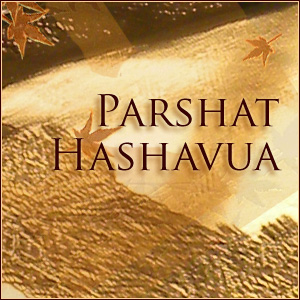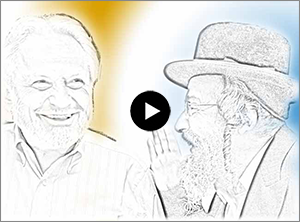Parsha Matos
I was inspired to an original idea in Parsha Matos.

Moshe Rabbeinu’s Prophecy
At the beginning of the Torah portion we find on the words “Ze HaDavar”, that Rashi brings from Chazal that the level of Moshe Rabbeinu’s prophecy was higher than the other prophets – whereas the other prophets prophecized with the expression “Ko Amar Hashem”, “Ko” renders itself “like this”, in other words, approximately. And indeed Moshe Rabbeinu also expressed himself Ko Amar Hashem.
But Moshe Rabbeinu also expressed himself in a higher level, “Ze HaDavar”, exactly this, exactly these words. To the “t”.
Searching for Jewish Beliefs? Click Here for my main article on Jewish Beliefs.
One can ask, why is this chiddush expressed here in the parsha of Nedarim. True, Nedarim is not an easy subject, but why did the Rebono Shel Olam find it necessary to give over to Moshe Rabbeinu that he should say it as “Ze HaDavar”? Exactly like this?
The Parsha of Nedarim
Perhaps we may answer with what comes at the end of the parsha of Nedarim. In posuk 16, “Eim Hafer Yafer … Ve’Nasa es Avona.” After the husband heard the Neder of his wife and was mekayaim it, later he changed his mind and was maifair the Neder, which doesn’t work of course, because it was already mekuyam, however his wife thought that it was indeed annulled. Rashi brings there from Chazal that from here we see, (from the word “Ve’Nasa”, that the husband gets punished for this sin of the wife if she transgresses the Neder), that he who trips up someone else into making a mistake, he steps in and receives the punishment as if he did it.
This is a whopping chiddush, which applies to the punishments of the Torah in general, that needs the Torah to say Ze Hadavar, the Almight’y said exactly this. I can almost imagine a young student reading the chumash, and when he gets to “Ve’Nasa” he sticks his finger on the word and starts looking around the page. Asks his friend, “What are you looking for?” The student answers, “I’m looking for the Bach, or the Rashash, or something – there’s a mistake here, it should say “Ve’Nas’ah”, with a “heh”, “She” will bear her sin, not him – why should he bear the sin?” Therefore Moshe Rabbeinu says, Ze HaDavar, don’t make any mistake about it, that’s exactly what the Almight’y says, that he who trips up his friend steps in to receive the punishment as if he did it himself.
Boruch Rappaport





Leave A Response